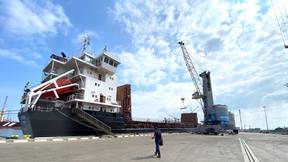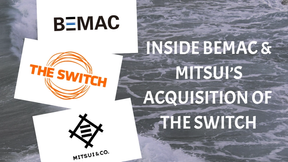IMO Approves Two New Emission Control Areas
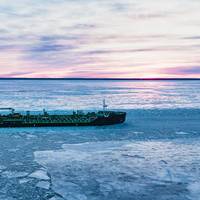
The IMO’s Marine Environment Protection Committee (MEPC 81) approved the establishment of two new Emission Control Areas (ECAs) in the Arctic when it met last week.The ECA in Canadian Arctic Waters is for nitrogen oxides, sulphur oxides and particulate matter. The Norwegian Sea ECA is for nitrogen oxides and sulphur oxides. The ECA proposals will now be submitted to MEPC 82 for adoption.“The creation of these two new Emission Control Areas will set an important precedent for protection of our climate and our ocean…
IMO Adopts Ban on Heavy Fuel Oil Use by Ships in Arctic
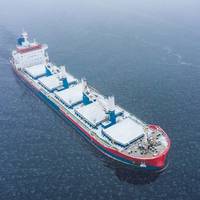
The United Nations shipping agency on Thursday adopted a ban on the use of heavy fuel oil in the Arctic region while green groups said the regulations contained loopholes which will allow many vessels to keep sailing without enough regulatory control.Antarctic waters are protected by stringent regulations, including a ban on heavy oil fuel (HFO) adopted in 2011, even though no cargo moves through the turbulent southern waters. For the Arctic, the rules have been looser.In a virtual…
What Happens When There Is an Oil Spill at Sea?
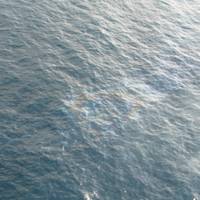
Clean-up crews worked on Wednesday to contain an oil spill in the Yellow Sea near the Chinese port city of Qingdao, a day after a tanker carrying around a million barrels of bitumen mix collided with a bulk vessel.While a preliminary study by Chinese maritime officials estimated about 500 tonnes (3,420 barrels) of oil had been spilled, it was still unclear as to the how much had been emptied into the sea.Here are some facts about oil spills and their impact on the environment.Types of spillsSpills typically involve two forms of oils…
Ships Make Record Number of Arctic Sailings in 2020
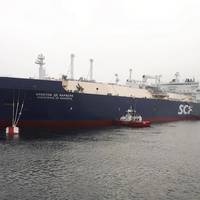
Ships sailing through the Arctic region’s busiest lane along the Siberian coast made the highest number of trips on record this year as a quicker-than-expected melting of ice enabled more traffic, data showed.The Arctic has warmed at least twice as quickly as the rest of the world over the last three decades and shipping activity has picked up.Analysis by the Centre for High North Logistics (CHNL) at Norway’s Nord University Business School showed there were 62 transits through the Northern Sea Route in the period to Dec.
UN's IMO Approves Ban on Heavy Ship Fuel in Arctic after July 2024
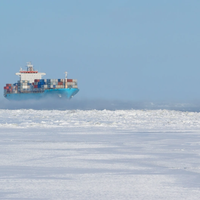
The United Nations shipping agency on Friday approved a ban on the use of heavy fuel oil in the Arctic region in a move criticized by green groups which said loopholes will allow many vessels to keep sailing without enough regulatory control.Antarctic waters are protected by stringent regulations, including a ban on heavy oil fuel (HFO) adopted in 2011, even though no cargo moves through the turbulent southern waters. For the Arctic, the rules have been looser.In a virtual session…
CAA Welcomes MSC 's Shelving Arctic Routes
Clean Arctic Alliance has welcome MSC Mediterranean Shipping Company's decision to avoid Arctic shipping route as a new short cut between northern Europe and Asia.Clean Arctic Alliance lead advisor Dr Sian Prior was responding to the announcement that shipping company MSC “will not explore or use the Northern Sea Route between Europe and Asia for container shipping” and that it believes that shipping lines should focus on reducing the environmental impact of existing shipping trade routes”.“The Clean Arctic Alliance welcomes MSC’s decision to avoid using the Northern Sea Route to ship goods between Asia and Europe. While MSC have understandably come under fire for their environmental record elsewhere…
IPCC SROCC Reports Call for HFO Ban
The Clean Arctic Alliance and the Inuit Circumpolar Council Canada call for urgent action to ban heavy fuel oil (HFO) use and carriage by Arctic shipping to reduce risks of a devastating spill, and to reduce black carbon emissions in the Arctic, responding to Intergovernmental Panel on Climate Change (IPCC) Special Report on the Ocean and Cryosphere in a Changing Climate (SROCC).SROCC’s Summary for Policymakers states that “Arctic ship-based transportation and tourism have implications for global trade, northern nations, and economies linked to traditional shipping corridors; they will also exacerbate local risks to marine ecosystems…
Nordic Prime Ministers Urged to Ban HFO
The Clean Arctic Alliance and the Iceland Nature Conservation Association urged the Nordic Prime Ministers and the German Federal Chancellor to support the call for a ban on heavy fuel oil (HFO) in the Arctic.Clean Arctic Alliance’s Lead Advisor, Dr Sian Prior said: "We urgently need a strong commitment from the Nordic Prime Ministers and Ms Merkel to ban the use and carriage of heavy fuel oil or HFO in the Arctic.” “This is an essential and easy first step to contribute to reducing the warming we are currently experiencing in the Arctic, and to remove the risk of devastating HFO spills. Better protection for the Arctic against the impact of increasing shipping and other developments in the region is essential for the future of the Arctic ecosystem…
Green Group Asks Cosco to Avoid HFO in Arctic
Clean Arctic Alliance has sent its second letter to Cosco, in which the NGOs urge the Chinese liner company to make public what fuel types its vessels use in the Arctic.Responding to reports that the 190m-long COSCO-owned cargo vessel Tian’en is due to arrive in the Swedish port of Gävle on August 18, having traversed the Arctic’s Northern Sea Route between the Pacific and the Atlantic, Clean Arctic Alliance Lead Advisor Sian Prior said: “Earlier this year, the Clean Arctic Alliance wrote to COSCO requesting it make public the nature of the fuel that the Tian’en, and other COSCO vessels planning on transiting the Northern Sea Route, will be using and carrying through Arctic waters.
Ban on HFO in Iceland Waters Hailed
The Clean Arctic Alliance welcomes Iceland’s plan to ban the use of fuel oils with more than 0.1% sulphur content from use as shipping fuel from its waters.The proposal from Iceland’s Ministry of the Environment and Natural for a new regulation on the use of fuel oil with more than 0.1% sulphur content for ships operating in its territorial waters, has been hailed by the green group.Dr Sian Prior, Lead Advisor to the Clean Arctic Alliance said: "While this prohibition will lower eMissions of sulphur oxides, and particulate matter content of eMissions and protect Iceland’s territorial waters beyond international requirements, and could potentially reduce heavy fuel oil (HFO) use and black carbon eMissions too…
NGOs Furious on Lack of Arctic Action
The Clean Arctic Alliance expressed frustration over Members States’ failure to address the risk to the Arctic from emissions of black carbon from international shipping, after a meeting of the International Maritime Organization’s Marine Environment Protection Committee (MEPC 74) closed in London.A proposal by the Clean Shipping Coalition and Clean Arctic Alliance member Pacific Environment to immediately switch away from heavy fuel oil – a major source of shipping’s black carbon emissions – to distillate fuels did not garner adequate support from Member States.There was however, broad support among Member States for regulations to control black carbon emissions…
NGOs Urge Black Carbon Emissions Cut
The Clean Arctic Alliance (CAA) urged the International Maritime Organization (IMO) Member States to reduce the impact of black carbon emissions from international shipping on the Arctic environment.The UN body gathers in London for a meeting of its Marine Environmental Protection Committee (MEPC74), during which a number of issues, including black carbon emissions and heavy fuel oil (HFO) in the Arctic will feature on the agenda.Emissions of black carbon particles by ships burning heavy fuel oil has a dramatic climate warming effect – black carbon is a potent short-lived climate forcer that remains in the atmosphere for only a few days to weeks.But when black carbon is emitted from ships burning heavy fuel in or near Arctic waters…
German Ports Sign-Up to Arctic Commitment
The ports of Bremen and Bremerhaven, Germany, have joined an ambitious campaign to a ban on heavy fuel oil (HFO) from Arctic shipping – along with more than 80 companies, organisations, politicians, NGOs and explorers.Bremenports GmbH & Co. KG, operates the twin ports Bremen and Bremerhaven, which rank as the fourth busiest container port in Europe, and the world’s 16th biggest.“Bremenports is proud to sign up to the Arctic Commitment. Heavy fuel oil has no place in Arctic shipping. We are calling on other ports to join us on calling on the IMO to enact a ban on its use in Arctic waters”, said Robert Howe, CEO of Bremenports GmbH & Co. KG.“Sustainability is a central element in bremenport’s strategy”, continued Howe.
Clean Arctic Alliance Warns Arctic Nations
Clean Arctic Alliance participated in a meeting of the International Maritime Organization’s (IMO) Sub-Committee on Pollution Prevention and Response (PPR 6) in London and hailed the progress towards HFO Free Arctic.However, the international NGOs working for a ban on heavy fuel oil (HFO) from Arctic shipping called on Arctic Nations Russia and Canada to step-up to their responsibilities by adding their support for a ban on HFO from use by Arctic shipping, and for Finland, Sweden, Norway, Denmark, Iceland and the United States, who already support the ban, to remain focussed on ensuring it is adopted in 2021, and phased in by 2023.“Earlier this week…
Clean Arctic Alliance Thrusts on HFO Ban
As a meeting of the International Maritime Organization’s (IMO) Sub-Committee on Pollution Prevention and Response (PPR 6) opened yesterday in London, the Clean Arctic Alliance called on Member States to remain focussed to the goal of developing a ban on the use and carriage of heavy fuel oil (HFO) by shipping in the Arctic.“While IMO delegates gather to discuss ways to mitigate the impacts of heavy fuel oil (HFO) – the dirtiest of ships’ fuels – on Arctic ecosystems, IMO member states must keep their sights firmly on the need for a ban, especially in light of recent revelations from the IPCC on the urgent need to limiting the effects of climate change on the Arctic region”…
Industry Groups Welcome Arctic Heavy Fuel Oil Ban
The Clean Arctic Alliance and indigenous groups welcomed the support given by member states to commence work on developing a ban on the use and carriage of heavy fuel oil in Arctic waters as the International Maritime Organization’s Marine Environment Protection Committee (MEPC 73) closed last week in London.Support for commencing work, to mitigate the risks of using and carrying HFO fuel in the Arctic which includes developing a ban, at the PPR6 technical meeting, in February 2019, was voiced by Austria, Bangladesh, Canada, Denmark, France, Germany, Iceland, Ireland, Netherlands, New Zealand, Norway, Spain, Poland, and the UK.MEPC 73…
Clean Arctic Alliance Calls for Renewing Commitment to HFO Ban
Clean Arctic Alliance called on member states to “renew their commitment” so that a ban on the use and carriage of polluting heavy fuel oil (HFO) from Arctic shipping can be adopted in 2021 as the International Maritime Organization (IMO’s Marine Environment Protection Committee (MEPC 73) gathered yesterday (October 22) in London.“IMO member states must be resolute in ensuring that the Arctic ban on heavy fuel oil is developed by 2020, and adopted in 2021, to protect Arctic ecosystems and communities from both the threat of oil spills and the impact of black carbon emissions”, said Dr Sian Prior, lead advisor to the Clean Arctic Alliance…
"What's Your Arctic Fuel Choice?" Clean Arctic Alliance Asks Cosco
The Clean Arctic Alliance called on Cosco to make public the nature of the fuel that the Chinese cargo vessel Tian’en has used and carried through Arctic waters.Clean Arctic Alliance Lead Advisor Sian Prior was responding to news that the Cosco-owned Tian’en has departed Arctic waters for the French port of Rouen, having travelled via the Arctic’s Northern Sea Route or “Polar Silk Road” along the coast of Russia, between the Pacific and the Atlantic."Cosco and its customers should commit using – and carrying only lighter distillate fuels or other cleaner alternatives instead of the world’s dirtiest fuel – heavy fuel oil (HFO) – to power ships in the Arctic…
Clean Arctic Alliance Welcomes Russian-Finnish Deal on Green Fuel
The Clean Arctic Alliance welcomes the joint statement by Russian President Vladimir Putin and Finnish President Sauli Niinisto on the need to move to cleaner ships’ fuels such as LNG in the Arctic.Speaking on behalf of the Clean Arctic Alliance, Alexey Knizhnikov of WWF Russia said that “the risks of using heavy fuel oil in the Arctic are too high, and we welcome President Putin and President Niinisto’s vision and leadership in seeking to move to cleaner fuels for Arctic shipping. We should now expect that the Russian Federation’s position on the HFO issue will be adjusted in line with President Putin’s statement, and we hope to see…
LNG Platform Supports HFO Ban in Arctic
German Maritime LNG Platform signed the Arctic Commitment, joining a diverse group of international companies, organisations, politicians and polar explorers calling for a ban on heavy fuel oil (HFO) use in Arctic shipping. "The Clean Arctic Alliance welcomes the German Maritime LNG Platform as a signatory of the Arctic Commitment. The LNG Platform joins a growing international movement calling for a ban on the use of HFO by ships in the Arctic’s pristine and fragile environment”, said Sian Prior, Lead Advisor to the Clean Arctic Alliance, a coalition of international non-governmental organisations that launched the Arctic Commitment in January 2017.
Clean Arctic Alliance Welcomes IMO Action on Arctic HFO
As the International Maritime Organization’s (IMO) Marine Environment Protection Committee (MEPC 71) concluded on last Friday, the Clean Arctic Alliance welcomed the support from Member States for a proposal to identify measures which will mitigate the risks posed by the use of heavy fuel oil (HFO) in Arctic waters, and called on the IMO to work towards a swift conclusion of the work. The proposal, Measures to Reduce Risks of Use and Carriage of Heavy Fuel Oil as Fuel by Ships in Arctic Waters was proposed by Canada, Finland, Germany, Iceland, the Netherlands, Norway and the US, and supported this week by the Czech Republic, Denmark, Estonia, France, Poland, Singapore, Spain and Sweden.
Ocean Conservancy Calls for Clean Arctic
“Ocean Conservancy welcomes steps taken by the International Maritime Organization to mitigate risks to the Arctic from the use and carriage of the world’s dirtiest fossil fuel. “Support for Measures to Reduce Risks of Use and Carriage of Heavy Fuel Oil as Fuel by Ships in Arctic Waters marks an important milestone in the bid to phase out the use of heavy fuel oil in the Arctic. “With climate change impacts resulting in record-breaking loss of sea ice—winter ice in the Arctic hit a record setting low in 2017 since records began 38 years ago—there will be a dramatic increase in vessel traffic through shorter Arctic sea routes to transport cargo between Southeast Asia and Europe. At present, around 75% of marine fuel currently carried in the Arctic is heavy fuel oil.
Clean Arctic Hails IMO Action on HFO
The Clean Arctic Alliance has applauded progress by International Maritime Organization member states towards banning use of the world’s dirtiest fuel – heavy fuel oil – from Arctic shipping. It also called for Member States to make every effort to adopt and rapidly implement a ban by 2021, as proposed by eight IMO Member States and supported by other countries during the meeting. Plans to develop a ban on heavy fuel oil (HFO) from Arctic shipping, along with an assessment of the impact of such a ban, were agreed upon during the International Maritime Organization’s (IMO) Marine Environment Protection Committee (MEPC72), which closed today in London.


